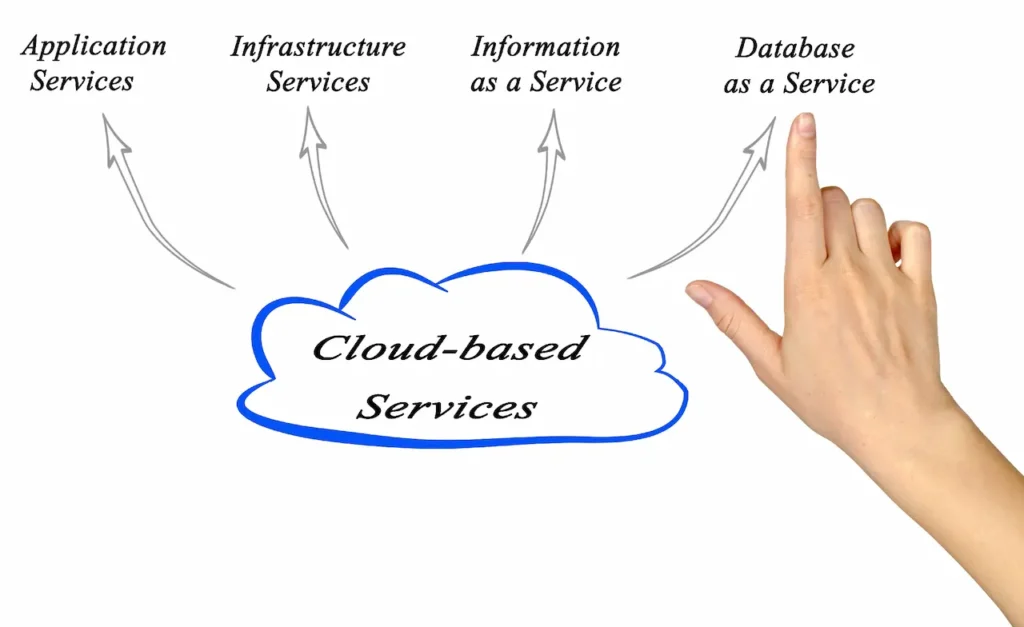Cloud-based Enterprise Resource Planning (ERP) Market Size, Scope, Forecast to 2029 Key Players
New Jersey (United States) – This report on the global cloud-based enterprise resource planning market includes a detailed analysis of regional trends and market dynamics, as well as the size of the industry at the national level. During the research, the following aspects were considered: product description, classification of products, industry structure, different market participants, etc. The report includes the values for the past period, and the forecast period, and the CAGR is measured by individual segments and regional markets.
The report provides data on companies that are active in the Cloud-based Enterprise Resource Planning market. This includes company profiles, product images and descriptions, production values, revenue, and contact details. This report provides important statistics about the current state of the market and can be a valuable source of information and guidance for individuals and companies involved in it. The CAGR forecast is presented along with qualitative and quantitative data, as well as other parameters, such as year-over-year growth in the market. The key points are the market size, volume, value, product portfolio, explanation of the market and classification. The Cloud-based Enterprise Resource Planning market is also explained, including the latest trends and technological advancements.

What is Cloud-based Enterprise Resource Planning (ERP)?
Cloud ERP is an enterprise resource planning system (ERP) that runs on the cloud platform of a vendor, rather than on-premises networks. This allows organizations to access via the internet. ERP software automates financial and operational functions and provides a single data source, such as inventory and order management. It also helps with procurement, production and distribution. The software is accessed via the Internet. All that’s required is a connection and a browser.
What is Cloud ERP Software?
Cloud ERP software is hosted by ERP vendors and offered as a service. It offers the same functionality or even better than on-premises ERP systems, without the downsides like upfront licensing costs.
IDC stated in its report that “demand for cloud ERP systems continues growing because they can access and analyze huge amounts of data near real-time.”
This allows sales teams to have real-time insights into inventory while allowing finance teams to focus on the cash runway. They can also respond quickly to audits and other requests for performance data.
How Does Cloud ERP Work?
Cloud ERP systems are a combination of technology connected via high-speed networks. Cloud ERP systems are always online, and the ERP provider handles all security updates. Your team only has to log in and use the ERP. It may result in a lower total cost of ownership compared to older ERP systems that are hosted on company-owned servers.
Cloud ERPs can be accessed by users via mobile devices and desktop computers. Cloud ERPs include a variety of business applications that will keep your business operating efficiently. They also focus on positive customer experiences and profitable business outcomes.
Cloud-based ERPs provide near-infinite scaling and enable your team to have access to any information needed, wherever they are working. This includes customer meetings to remote worksites to your home office. In the post-COVID environment, more and more employees are working remotely.
The key features include access to customer information, sales history, financial data, Human Resources Management tools and live operating metrics. Cloud ERPs can connect virtually any computer system your business needs.
You can select from a variety of deployment models, each with its modules and settings. This can help your team stay focused on metrics and workflows that will meet the goals of your business.
Cloud ERP Software Components
Cloud-based ERP software offers core accounting and financial functionality. The type of modules and applications that an organization implements will depend on their industry and business needs. Available cloud ERP modules include:
- Accounting and financials
- Human capital management (HCM), and/or software for Human resource management (HRMS).
- Customer Relationship Management (CRM)
- Inventory Management
- Order Management
- Procurement
- Supply Chain Management
- Project Management
- Material Requirements Planning (MRP)
Major players in the cloud-based Enterprise Resource Planning Markets:
- IBM Corporation
- Oracle Corporation
- Sap Se
- Infor
- Aptean
- Microsoft
- Sage Group Plc
- Epicor Software Corporation
- Syspro
- Unit4
- Workday
- Sage Software
- Qad Inc
- Plex Systems
- Acumatica
- Deltek
- Rootstock Software
- Iqms
Market Segmentation of Automated Medication Distribution Systems:
The Automated Medication Dispensing Systems Market Report has divided the market into segments, including product type and application. Each segment is analyzed based on its share and growth rate. Analysts have also studied potential regions which could prove lucrative for manufacturers in the future. The regional analysis provides reliable predictions of value and volume. This helps market players gain a deeper understanding of the industry.

Market Analysis of Cloud-based Enterprise Resource Planning Systems (ERPs) by Type:
- By Function
- Financial Services
- Hr
- Supply Chain
- Other
- Deployment
- On Premise Erp
- Cloud Erp
- By Component
- You can also find out more about the solution by clicking here.
- Service
Market analysis of cloud-based Enterprise Resource Planning by application:
- Manufacturing & Services
- Bfsi
- Healthcare
- Buy it Now
- The Government
- Aerospace & Defense
- It & Telecom
- Other
Based on geography: North America (USA, Canada, Mexico), Europe (Germany France UK Russia Italy), Asia-Pacific Asia-Pacific (China Japan Korea India Southeast Asia) South America (Brazil Argentina Columbia etc. Middle East and Africa: Saudi Arabia, UAE Egypt, Nigeria, South Africa, and Nigeria.
Answers to the key questions in this report:
- What is the potential growth of the cloud-based Enterprise Resource Planning market?
- What product segment will dominate the market?
- Which regional market is likely to be the leader in the next few years?
- What application segment is expected to grow steadily?
- What growth opportunities could arise in the lock-washing industry in the next few years?
- What are the major challenges that cloud-based Enterprise Resource Planning markets (ERP) could face in future?
- What are the top companies on the global market for cloud-based Enterprise Resource Planning?
- What are the key trends that positively impact the market growth?
- What growth strategies are envisaged by players to maintain their grip on the global cloud-based Enterprise Resource Planning market?
The study examines in detail the profiles of major market players, including their financial aspects. This business analyst report will be useful to all new and existing business owners as they develop their business strategies. This report includes production, revenue, share of the market, and growth rate for the Cloud-based Enterprise Resource Planning market. It also covers breakdown data by region, type, and application. Historical breakdown of Cloud-based Enterprise Resource Planning from 2016 to 2020, and forecasts to 2021-2029.
About Us: Market Research Intelligence
Market Research Intellect offers syndicated and custom research reports for clients in various industries and organizations. We also provide in-depth data analysis and consulting services. Etc. Our research studies help our clients make better data-driven decisions. They can also capitalize on opportunities, accept push forecasts and optimize efficiency.
